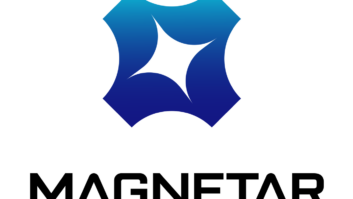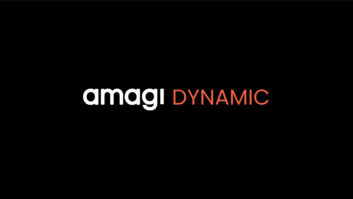New York — The National Association of Broadcasters [NAB] is “disingenuous” for opposing the proposed satellite radio merger on the grounds that a duopoly would become a monopoly, Sirius Satellite Radio CEO Mel Karmazin told TWICE in an exclusive interview.
The annual reports of all publicly held radio groups “say in their risk factors that they compete with satellite radio,” he said. “So it’s just disingenuous for an organization [NAB] to stand up and say this is a duopoly becoming a monopoly.”
During an interview at Sirius headquarters here, Karmazin said the intensity of the NAB campaign to shoot down the proposed XM-Sirius merger, although “probably predictable,” proves the point that satellite and terrestrial radio compete and that the proposed merger would not result in a monopoly.
Karmazin also made the following points:
• The merger will help satellite radio compete, but isn’t necessary for the industry’s survival.
• In order to meet the FCC’s public-interest requirements, the merged companies would offer “more choice, lower prices” and flexible — but not totally a la carte — pricing plans, which would credit consumers for channels that they choose not to receive.
• Aftermarket customers are less likely to churn than consumers who get satellite radio in a new car.
TWICE: Has the merger proposal proven to be more of an uphill battle than you thought?
Karmazin: No. So far everything has happened as we thought it would be. I had a number of board meetings prior to the announcement on Feb. 19 and told the board that we would need to pass two hurdles in order to get merger approved. One would be the Department of Justice (DOJ) would have to determine that the merger was not anticompetitive. And I believe that they would conclude it’s not, mainly because if you just think about satellite radio, we do compete with a lot of audio entertainment products. But let’s just call it terrestrial radio for the time being. There are 13,000 terrestrial radio stations. Why should our two companies combining be anticompetitive when you have all of these competitors?
The second hurdle would be at the FCC, and there they have the same competition arguments or concerns, but they also have a public-interest standard, and we believe we have put forth proposals that would in essence offer consumers lower price and more choices. So if in fact you give a consumer a lower price and a greater choice, then that should be in the public interest. So those things were anticipated.
The time frame that we announced in February was by the end of the year. We reiterated that in our last earning call, that it would be at the end of the year, we hope.
I thought that the NAB would be very aggressive against us because they have been against satellite radio since 1990, when David Margolese founded the company [Sirius, then Satellite CD Radio]. And they have been fighting satellite radio for 17 years, so it doesn’t come as a surprise that they would fight it here.
TWICE: Has theNABbeen more aggressive than you expected?
Karmazin: I really hadn’t thought about how much [aggressive] they would be. But I knew they would be fighting. Did I know they would be going to hire people to write letters on their behalf, and pay people to oppose it, and did I think they would spend the kind of money that they’re spending on trying to stop the merger? [That’s] predictable. They get funded by broadcasters. They don’t have any responsibility other than lobbying, and they are a formidable lobby in Washington. And they just continue to spend money.”
TWICE: Have you had to be more aggressive to counter those efforts?
Karmazin: I wish we didn’t have to. In all candor, I wish we were able to just leave it to the two government agencies to do it. Maybe I was naïve to think that we would just be able to rely on the facts that the Justice Department and the FCC would be faced with. But the NAB has hired an awful lot of people, and has spent a lot of time walking the halls of Congress trying to get support against the merger, [so] we felt that we needed to have lobbyists represent us.
Maybe it’s just naiveté on my part. I wish the process would just along as compared to having to do all of this, but we needed to do it competitively.”
Our agenda is to get the merger through. We said it was a long process we were going through, and we are certainly cooperating with all of the regulatory agencies involved, the Department of Justice and the FCC, by giving them all the information they requested. We’ve done four [Congressional] hearings, and in questions about pricing, we talked about how in the future, we’re going to give some more details of some of the pricing proposals that we had, but we have certainly been talking about them from the [time of the] merger [announcement]. We’ve talked about lower prices, but we really did not come forth with the specific details. At some point between now and when the deal is done, you should assume that we’re going to do that.
We’ve had a number of conversations from different organizations about us wanting their support, and one of the things we’ve said in the past, as an example, is that right now … if you want a subscription to Sirius, you pay $12.95. There is not a cheaper way of getting a subscription. And if in fact you want some of the content blocked — let’s assume there is content that you don’t want to come into your home — we’ve always said we can block it for you. What we’ve said is that a result of this merger … we would be open to that idea of blocking and crediting, but we’ve not come out with any of the specific details of that. What we have said, and if we go back to February 19th when we announced this merger, we talked about giving consumers more choice, lower prices, and more a la carte-like services.
TWICE: So you [and XM] hired Quinn Gillespie as your first lobbying firm as a result of theNABassault?
Karmazin: It depends on what you’re calling a lobbyist. We’ve always had some people who represent us for royalty rights and other issues that came along in Washington, and we had the law firm Wiley Rein that does work for us normally, and they have a lobbying arm, or some people who do some lobbying. And then we added Quinn Gillespie. Probably between Sirius and XM, we have a bunch of other ones representing us. But all of this was done after the merger was announced.
We have not literally had anybody in-house or even had a Washington office. Maybe shame on us that we never had a Washington office. And suddenly when this thing was announced, on the very first day, the NAB came out firing all of their guns.
It strikes me that if we’re getting into the merits of it, why should the NAB care? The NAB is not talking about the immigration bill, and they’re not talking about other issues, but they’re talking about the Sirius-XM merger. They must have reason for that. They’re not doing it as concerned U.S. citizens. So if in fact they are doing it because they feel that competitively they need to do it, then it sort of makes our argument that we are competing with them, and if we are competing with them, then their message that this is a duopoly becoming a monopoly can’t be true because why are they involved? If it was just a market called satellite radio, why should they care what happens to satellite radio if it didn’t compete with them?
We ought to think about their motives and why do they want us to withdraw it … We believe that just like there has been a great deal of consolidation in the terrestrial radio business, just like there has been a lot of consolidation in the television business, all of those thing, the NAB has not spoken out against. As a matter of fact, the NAB has been a leading proponent for it. But anytime there is a competitor that might get stronger against them, they speak out against it. We have 3.4 percent, XM and Sirius combined, of the listening [audience] that’s out there, and you would think this was Exxon/Mobile combining based on the way the NAB has been fighting it. I think what it has done has given us a sense of believing that we are right, that we are competitive to them.
If you go back to 1998 when we made our SEC filings for a public company, we said back in 1998 that we compete with terrestrial radio. One of the risk factors of our business was that we compete with terrestrial radio. If you take a look at all of the public radio companies, and you look at their annual reports, what they file with SEC, they say in their risk factors that they compete with satellite radio. So it’s just disingenuous for an organization [NAB] to stand up and say this is a duopoly becoming a monopoly. If that is a duopoly, how could they be competing with them? And if they are competing with us, that’s not a duopoly.
TWICE: Have you been meeting with the FCC to discuss your pricing plans?
Karmazin: We’re meeting with any interested party that cares about it. At this point, if in fact the Justice Department cared about pricing, we would certainly be happy to talk with them about it. If in fact the FCC has cares about it, we would be discussing it with them.
There are five members of the FCC. We’d like to get this approved 5-0. And if they have a viewpoint on how we can make our merger better for the public interest, we’re open to it.
TWICE: You’d be willing to do anything?
Karmazin: I said that we’d like to get that support. And no, we’re not willing do anything. I think we heard one of the senators would offer his support for the merger if I agreed to conform to the indecency [standards] of over-the-air broadcasting. And I told the senator with all due respect that we were not covered, just like cable television isn’t subjected … to the same rules that the broadcasters are. Satellite radio isn’t [covered], and no, I would not be willing do to that.













